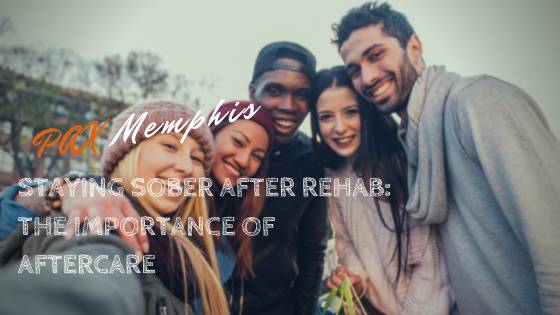Addiction is a complex mental health disorder that affects both the mind and body. Recovery, on the other hand, is a continuing process. As a chronic disease, there is no cure for addiction. Many people think that themselves or a loved one will be able to stay sober after a short rehab stint. However, real, lasting recovery is more than 30-90 days at an addiction treatment center. Instead, recovery requires ongoing care and support.
In many cases, the first kind of aftercare individuals participate in is intensive outpatient (IOP) or outpatient (OP) programs. In addition, many find it beneficial to join a self-help group, 12-step fellowship, or live in a sober living home. Each person can benefit from a different type of aftercare, so it is important to determine which aftercare treatment program will best suit your needs.
How Aftercare Benefits Your Recovery
Aftercare helps pave the path for long-term sobriety for a variety of reasons. Unfortunately, many individuals who leave inpatient rehab without participating in some type of aftercare will relapse. Attending simple programs and groups after treatment often mean the difference between sobriety and relapse.
Most aftercare programs focus on developing healthy coping mechanisms, offering guidance and professional care, and helping individuals foster healthy relationships. However, each type of aftercare is different and benefits recovery in different ways.
Sober Living
Sober living homes, or halfway houses, are a popular choice of living for many people who leave treatment. When individuals leave treatment, returning home can be overwhelming. After all, they may be exposed to emotional triggers and outside influences that they aren’t prepared for. In addition, there may be a lack of structure and accountability. As a result, developing a routine after treatment is both difficult and necessary.
Instead of returning to one’s home environment, many choose to go to a sober living home. These homes are usually regulated by a house manager, home to several people living in recovery, and subject to random drug tests and breathalyzers. Sober living homes provide a safe environment for individuals to recover in. In addition, one will be held accountable by his or her peers and will have ongoing emotional support.
Outpatient Treatment
Outpatient treatment, for many, is a step down from inpatient rehabs or partial hospitalization programs. OP is held several times a week for an hour or so at a time. Usually, OP consists of group and individual therapy. Group-oriented outpatient treatment offers peer support, therapy, life skills guidance, and medication management.
Inevitably, individuals in recovery will face various obstacles, during which, they may require additional support and guidance. OP allows individuals to have a place to bring these problems to and seek advice and support.
12 Step Fellowships
12-step fellowships, such as Alcoholics Anonymous (AA) and Narcotics Anonymous (NA) are popular forms of aftercare for people in recovery. These groups are spiritually based and suggest that members work the 12 steps with a sponsor. In addition to the steps, these fellowships hold regular meetings where speakers share their experience, strength, and hope with the rest of the group.
12 step programs provide participants with a spiritual way of life as well as emotional support. In addition, they encourage members to do service by helping others. As an altruistic way of life, many people in recovery find purpose and belonging in 12 step fellowships. [1]
SMART Recovery
Self-management and recovery training (SMART) is a support program that helps individuals suffering from addiction live a better way of life. SMART programs differ from 12-step programs because they are not based on a higher power. Instead, it is a self-empowerment program. Like 12 step fellowships, individuals can find structure as well as a support group through SMART recovery.
SMART recovery focuses on promoting motivation techniques, combating urges, coping with emotions, enforcing positive behaviors, and providing life balance. All of these are tools that are essential to achieve long-term sobriety. As a result, SMART recovery programs are a great form of aftercare for people who prefer a self-help program that is not spiritually based. [2]
Therapy & Counseling
Nearly 50% of people with substance use disorders also suffer from some type of mental health condition.[3] As a result, individuals with co-occurring disorders face additional challenges on their road to recovery. After all, just because a person gets sober doesn’t mean his or her mental health condition goes away, too. Consequently, therapy or counseling from a licensed mental health counselor can be beneficial.
One-on-one therapy provides individuals with a safe place to confide in a professional. Sometimes, it can be difficult to talk about certain things with a support group. However, speaking to a licensed counselor can be a great alternative to help individuals deal with their unique issues and challenges.
Aftercare Programs at PAX Memphis
After clients at PAX Memphis complete the PHP level of care, they participate in intensive outpatient treatment (IOP). IOP consists of 9-15 hours of clinical care from Memphis addiction specialists. This program is intended to help clients dig deeper into the underlying causes and conditions of their addictions as well as to provide clients with the tools needed to attain lasting sobriety.
Medically Reviewed: September 25, 2019

All of the information on this page has been reviewed and verified by a certified addiction professional.










